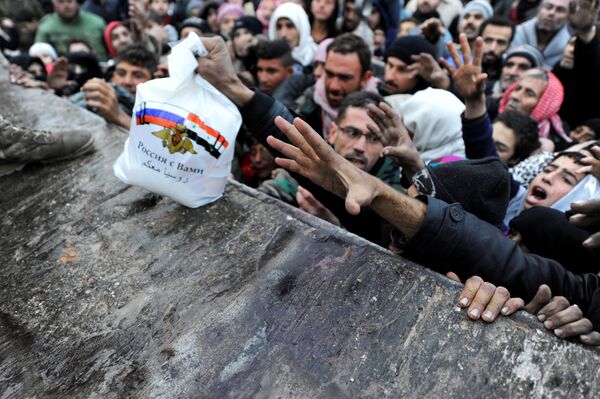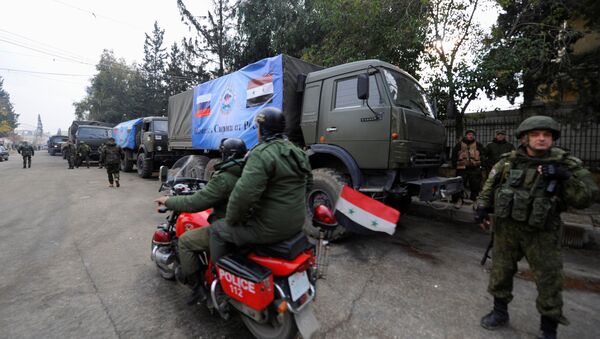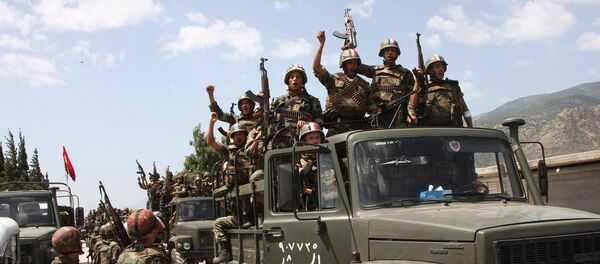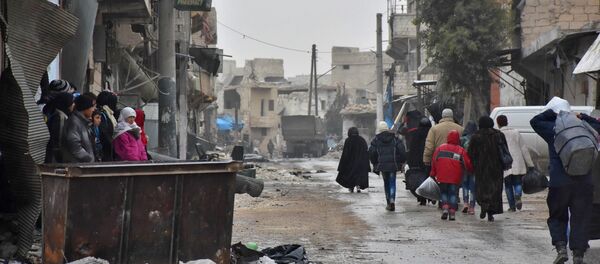On Wednesday, diplomats placed blame for the escalating military engagement and worsening humanitarian situations in Syria on inaction in the UN Security Council.
Meanwhile, US' and Russia's ambassadors to the UN exchanged barbs during the emergency session at the Security Council in New York.
US Ambassador to the United Nations Samantha Power blamed Russia for telling what she described as "outright lies" on the Russian bombing of Aleppo.
In response, Russia’s UN envoy Vitaly Churkin, accused the United States and other Western powers of engaging in "cynical sanctimony."
He rejected criticism against Russia especially after Britain’s ambassador, Matthew Rycroft accused Moscow of supporting "a deliberate act of starvation and a deliberate withholding of medical care" in Aleppo.

The Russian envoy stressed that Russian soldiers have helped distribute food aid to displaced people who had fled eastern Aleppo to government areas, handing out packages stamped with the Russian flag and the slogan "Russia is with you" in Arabic.
"We vehemently condemn any attempts to protect terrorists including any political action on a humanitarian pretext which, sadly alas, UN humanitarian works have been dragged into," Vitaly Churkin then said.
Commenting on the developments in the region, French political scientist Bruno Tertrais suggested that it was Washington which "voluntarily left the field" and "gave way to Russia" there, making Moscow and "unavoidable" player in settling the ongoing crisis.
"Russia has become an unavoidable player in the settlement of the Syrian crisis due to western countries lacking the desire, primarily the US, to seriously interfere into the conflict," he said in an interview with the French Le Monde newspaper.
The responsibility, he suggested, lies solely on the US as it decided against serious involvement into the Syrian crisis as it did not want to get at loggerheads with the Syrian ally Iran or run the risk of confrontation between Russia and the US.
"They gave Russia absolute freedom and it has become an unavoidable player," he suggested.
Then it should conduct "targeted strikes" on those units of the Syrian army who bombard the positions of the Syrian opposition. However he warned against changing the government, citing as example the situation in Iraq.
He further suggested keeping part of the Syrian regime in power however noting that the situation won't improve while President Assad retains his post.
Meanwhile the website of an American daily evening television news program PBS NewsHour, broadcast on the Public Broadcasting Service, reported that US officials conceded they have little to no chance of securing a diplomatic breakthrough on Syria in President Barack Obama’s last weeks in office.
"Given Donald Trump’s promises of closer cooperation with Russia, the US has lost what limited leverage it had," it stated.
Until recently, it said, top US officials "still dangled the threat of reviving any of the various Syria plans Obama long had rejected, from a no-fly zone over opposition-held territory and more weapons to the rebels to sanctions on Moscow for aiding Syrian President Bashar Assad."
"And the sense of US powerlessness is so profound right now that even Obama’s Plan A – diplomatic efforts with Russia – doesn’t seem to be taking on added urgency," it said.
"Before the election, officials had hoped to use the looming reality of a Hillary Clinton presidency and her talk of a more hawkish Syria policy to extract some Russian concessions that might lead to a cease-fire and talks on a post-Assad future for Syria," it said.
"But with Trump’s presidency less than eight weeks away, the Russians can wait out the clock on Obama and see if a better deal awaits them," it said.






